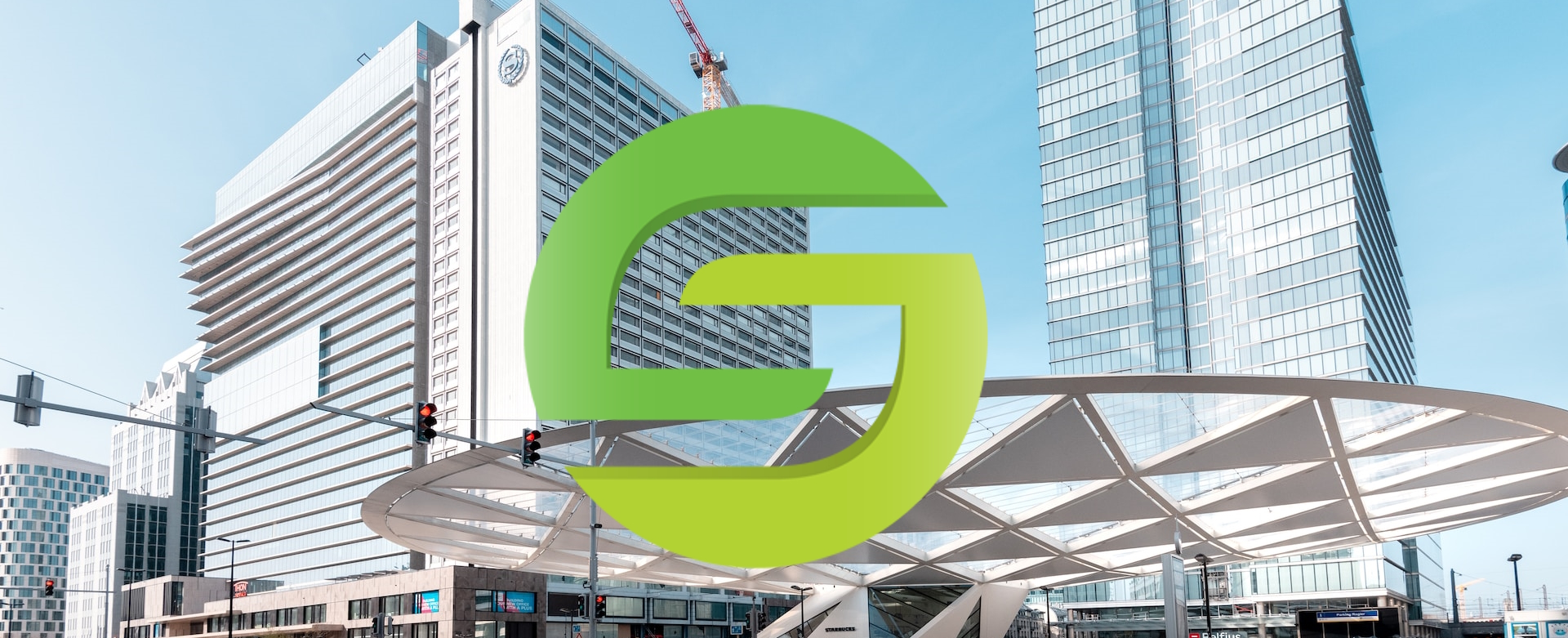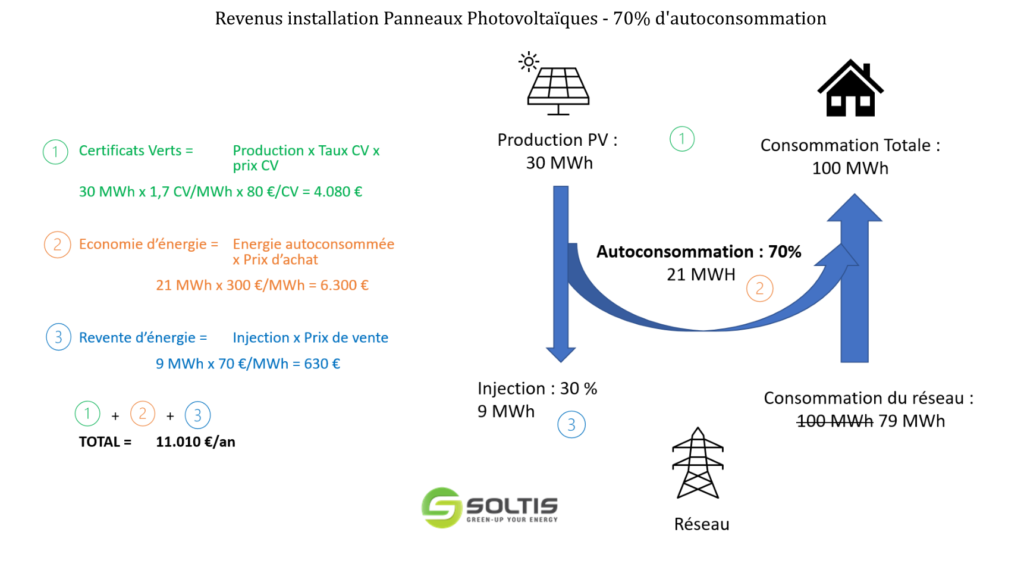Since October 13, 2023, the number of green certificates (GCs) for solar panel installations with a capacity of less than 36 kWp has been increased in the Brussels Region. What are the implications of this increase for individuals and companies wishing to invest in photovoltaic solar panels?
How does the green certificate mechanism work?

The green certificate system supports the production of green electricity. Owners of photovoltaic systems receive CVs for 10 years for each MWh of electricity produced (1,000 kWh). These CVs can then be sold, which represents a not inconsiderable income, in addition to savings on consumption and the resale of injected electricity! The aim of the system is to help investors recoup the cost of their installation within a maximum of 7 years.
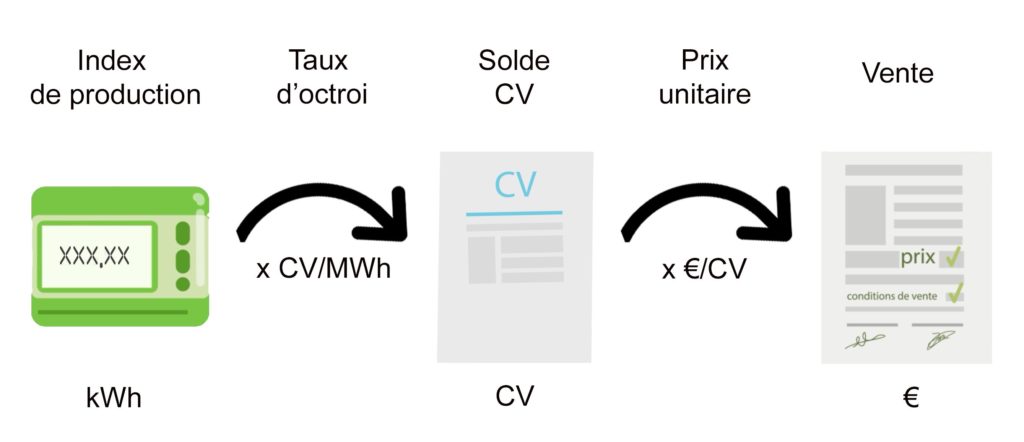
The number of CVs granted for each MWh of electricity produced is determined by BRUGEL .
This rate is recalculated each year according to changes in the following parameters:
- If the price of PV systems rises, the CV rate increases
- If the price of electricity rises, the CV rate falls
- If plant productivity increases, the CV rate decreases
- If the sale price of green certificates increases, the CV rate decreases
The recent rise in the green certificate award rate is essentially linked to the increase in the price of installations and the reduction in the resale price of CVs.
Since 2022, plant prices have risen sharply due to the consequences of Russia's invasion of the Ukraine, combined with the extension of anti-Covid measures in Asia, which has pushed up the CV rate. However, since the end of the summer panel prices have fallen to an all-time low but this has not yet been reflected in the CV rate!
On the other hand, due to the war in Ukraine, the price of electricity reached record highs last year, making investment in a PV plant naturally more profitable and thus, conversely, reducing the CV rate. We note that the price of electricity has fallen since then but still at a relatively high level (around €0.35/kWh for private customers).

The productivity of PV installations corresponds to the energy produced (in kWh) by each kWp installed. Productivity is tending to increase as the performance of panels and inverters improves, as the quality of installation and maintenance improves, and as the amount of annual sunshine in Belgium increases , due to the reduction in air pollution (good news) and global warming (bad news). All this has the effect of reducing the CV rate.
Finally, the price of green certificates varies according to supply and demand on the market: producers sell their CVs to suppliers, who are obliged to purchase a certain quota. However, since 2022, the number of PV installations has risen sharply and the quantity of CVs on the Brussels market has exploded. At the same time, electricity consumption electricity consumption has fallen sharply as citizens and businesses were forced to adapt their uses (which is good news). Low supply and high demand... which is why the average price of CVs is now close to the minimum price of €65/CV (instead of €90/CV at the start of 2022!). This has the effect of increasing the CV rate.
Higher CV rates and lower installation prices: a winning combination... thanks to the unlimited validity of CVs!
Investing in a photovoltaic system is even more attractive today than it was just a few months ago! The green certificate rate is guaranteed for 10 years from commissioning. At the moment, panel prices are at an all-time low. What's more, despite having fallen since the start of the year, electricity prices remained relatively high today.
Here are the changes in the CV rate for installations of less than 36 kWp since October 13, 2023:
Source : https://www.brugel.brussels/themes/energies-renouvelables-11/mecanisme-des-certificats-verts-35
- From 1.9 to 2.055 CV/MWh for systems from 0 to 5 kWp
- From 1.8 to 1.953 CV/MWh for systems between 5 and 36 kWp
"Yes, but the price of green certificates is low too!"
In fact, the price of CVs is also at rock bottom, which limits the profitability of the investment. However, the
the validity of green certificates is unlimited
. The green certificates produced from now on at an attractive rate can be resold when the price of CVs rises, while already making it possible to save energy thanks to a PV installation at a "floor" price.
What is the impact of a 5 kWp photovoltaic installation (residential)?
The prices given here are indicative. For a real estimate, don't hesitate to ask us for a quote and a profitability study: https://soltis.be/devis/
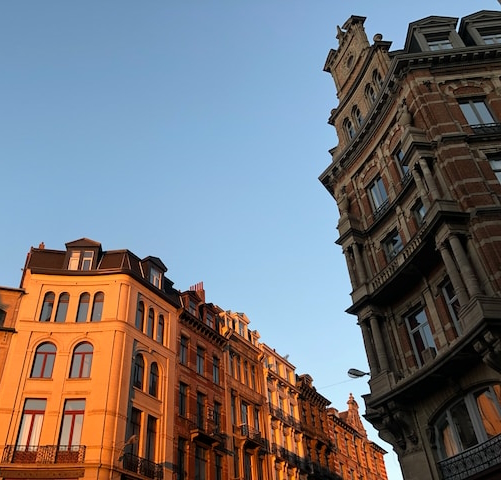
- 11 panels Jinko Tiger Neo 440 Wp i.e. 4.840 Wp
- 1 inverter Huawei SUN2000-4KTL-L1 rated at 4.4 kVA
- Estimated price: €7,000 inc. VAT or approx. €1.38/Wp (excl. VAT)
- Annual output: 4,800 kWh (4.8 MWh)
- Energy savings (30% self-consumption; €0.35/kWh) = €504/year
- Energy resale (70% injection; €0.07/kWh) = €235/year
- Resale of green certificates: 4.8 MWh x 2.055 CV/MWh x 65 €/CV = 641 €/year
- Annual income (first 10 years): €1,380/year
- Return on investment: 5 years
- Gain after 10 years: €6,800
The prices given here are indicative. For a real estimate, don't hesitate to ask us for a quote & a profitability study.
What is the impact for a 10 kWp photovoltaic installation (residential, small business)?
- 24 panels Jinko Tiger Neo 440 Wp for a total of 10,560 Wp
- 1 inverter Huawei SUN2000-10KTL-BEM1 10 kVA power
- Estimated price: €11,700 inc. VAT or approx. €1.05/Wp (excl. VAT)
- Annual production: 10,000 kWh (10 MWh)
- Energy savings (30% self-consumption; €0.35/kWh) = €1050/year
- Energy resale (70% injection; €0.07/kWh) = €490/year
- Resale of green certificates: 10 MWh x 1.953 CV/MWh x 65 €/CV = 1270 €/year
- Annual income (first 10 years): €2,810/year
- Return on investment: 4 years
- Gain after 10 years: €16,400
The prices given here are indicative. For a real estimate, don't hesitate to ask us for a quote and a profitability study.
What is the impact for a 36 kWp photovoltaic installation (SME)?
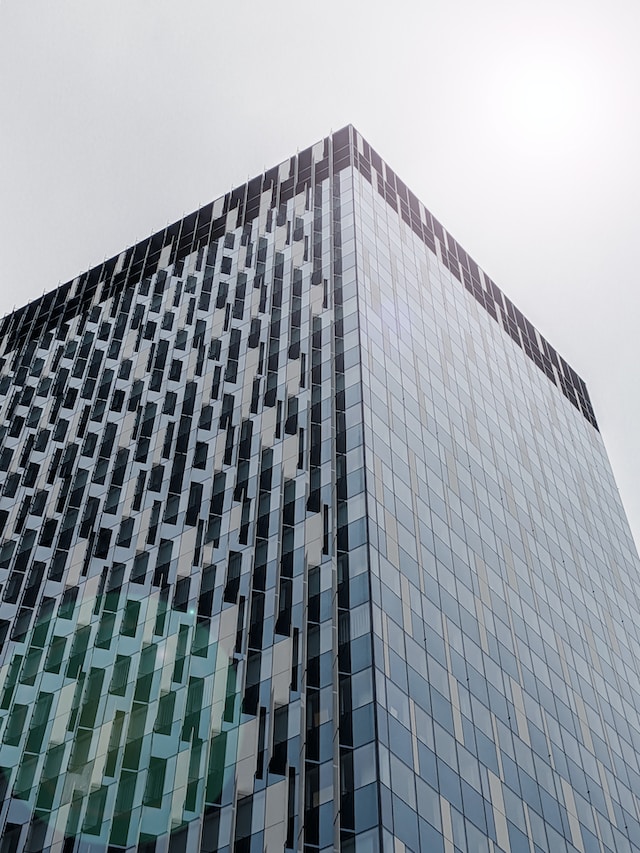
- 81 panels Jinko Tiger Neo 440 Wp i.e. 35,640 Wp
- 2 inverters Huawei Sun2000-12KTL-M5 with a total output of 26.4 kVA
- Estimated price: €33,250 excluding VAT, i.e. approximately €0.93/Wp (excluding VAT) + €1,500 network study costs + €1,500 stability study, i.e. €36,250 excluding VAT
- Annual production: 34 MWh
- Energy savings (50% self-consumption; €0.25/kWh) = €4,250/year
- Energy resale (50% injection; €0.07/kWh) = €1,190/year
- Resale of green certificates: 34 MWh x 1.953 CV/MWh x 65 €/CV = 4,316 €/year
- Annual income (first 10 years): €9,756/year
- Return on investment: 3.7 years
- Gain after 10 years: €61,310
The prices given here are indicative. For a real estimate, don't hesitate to ask us for an estimate and a profitability study.
This makes it particularly attractive for SMEs and private individuals to consider investing in a photovoltaic solar panel installation, which can pay for itself in less than 5 years!
For a more detailed explanation of the savings and income generated by a photovoltaic system, please consult our article on the subject:
Understanding solar panel revenue mechanisms in 2023-2024
Conversely, the CV rate will be reduced for larger installations (>36 kWp) from February 1, 2024.
Here are the changes in CV rates for installations over 36 kWp from February 1, 2024:
https://www.brugel.brussels/themes/energies-renouvelables-11/mecanisme-des-certificats-verts-35
- From 1.7 to 1.016 CV/MWh for 36 to 100 kWp installations
- From 1.4 to 0.642 HP/MWh for 100 to 250 kWp installations
- From 1.2 to 0.58 CV/MWh for installations over 250 kWp
For larger installations (>36 kWp), the price of green certificates has not fallen as much as for private customers, which is why the rate at which CVs are granted will fall by more than 50% from February 2024! It therefore makes sense to install a system of this power quickly, so as to benefit from a CV rate that is still high today.
The reason is that companies in Brussels with larger solar panel installations can better negotiate the resale of their green certificates and therefore sell them at the most opportune moment!
Together, we can achieve our green energy targets in Brussels

In Brussels, the potential surface area for photovoltaic panels is still far from fully exploited. compared to Flanders and Wallonia. This is due to the low proportion of private homeowners, the large number of condominiums, the small size of roofs and the complexity of working in an urban context.
So there's still plenty of space available on the roofs of Brussels homes and businesses! Yet photovoltaics is the only source of green energy available in the Region (apart from geothermal and biomass, which have limited potential).
This is why the green certificate mechanism still exists for photovoltaics in the Brussels Region, unlike in other regions.
Are you interested in a profitability study for your photovoltaic system?
Don't hesitate to for a free, detailed quotation!

